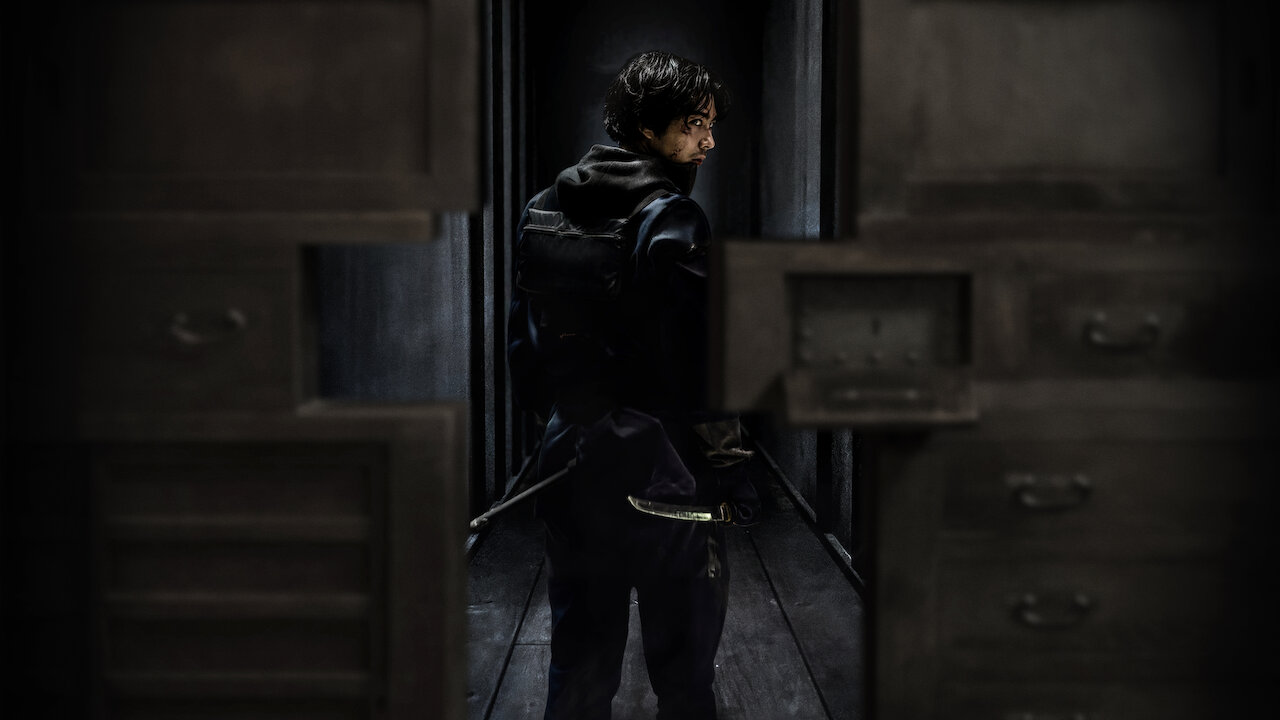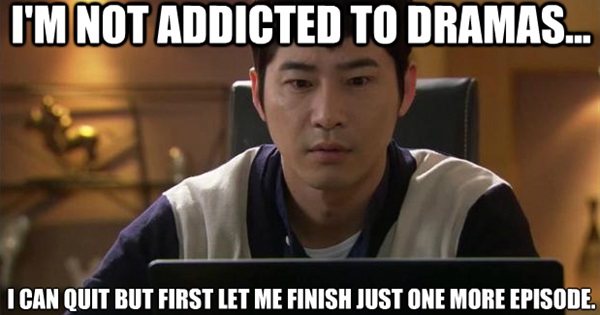Ninja Evolution: How House Of Ninjas Bridges Tradition And Modernity
Netflix has once again proven its ability to captivate audiences with its original series, the Japanese series House of Ninjas. This unconventional spectacle fuses top-secret spy action with family drama, revolving around a dysfunctional clan of ninjas who have abandoned their formidable past lives to blend into the modern world.
Ninjas have long fascinated the world with their mysterious and fearsome physical abilities, captured in epic proportions on screen throughout the years. From the classic ninja films of the 1980s to the more recent ninja-sploitation craze, these stealthy warriors have maintained a strong presence in popular culture. However, House of Ninjas takes a unique approach, posing the question: What if ninjas still operated among us, secretly saving the world from crisis as unseen heroes?
The series, directed by Dave Boyle, effectively bridges the gap between traditional ninja lore and modern-day storytelling. By setting the narrative in 2024 and following the Tawara family, the last surviving clan of ninjas, House of Ninjas explores the evolution of these ancient warriors and their struggle to adapt to a world that no longer seems to need them.
The show's ability to fuse classic martial arts action with intense family drama and suspenseful spy thriller elements makes it a must-watch for fans of the ninja genre and those seeking a fresh take on the classic tale of good versus evil.
Quick Facts
Synopsis
House of Ninjas is a Japanese Netflix original series that follows the Tawara family, the last surviving clan of ninjas in present-day Japan. Once proud and skilled shinobi, the Tawaras have abandoned their ninja duties after a tragic incident six years ago claimed the life of their eldest son, Gaku.
Now, they struggle to live a normal life, each family member grappling with the weight of their past in their own way. However, when a new threat emerges, the Tawaras are reluctantly drawn back into the shadows, forced to confront their legacy and the ties that bind them together as a family of modern-day ninjas.
The series skillfully blends action, drama, and humor, exploring themes of identity, tradition, and the challenges of adapting to a rapidly changing world. With a talented ensemble cast, including Kento Kaku, Yōsuke Eguchi, and Tae Kimura, House of Ninjas offers a fresh perspective on the ninja genre, showcasing the Tawaras' journey as they navigate the complexities of family, duty, and the ever-evolving nature of their ancient craft.
Fans of action-packed storytelling and character-driven narratives will find much to enjoy in this unique and engaging series. Definitely a must watch.
Cast
- Kento Kaku as Haru Tawara: The second-oldest son of the Tawara family, Haru is an elite ninja who struggles with the guilt of his older brother's death during a mission.
- Yōsuke Eguchi as Soichi Tawara: The patriarch of the Tawara family, Soichi has retired from his ninja duties to run the family brewery, unaware that his family continues to engage in secret missions.
- Tae Kimura as Yoko Tawara: Haru's mother, Yoko is a resourceful woman who secretly utilizes her ninja skills for missions, despite the family's attempt to live a normal life.
- Kengo Kora as Gaku Tawara: The eldest son of the Tawara family, Gaku was killed six years ago during a mission to rescue a kidnapped politician, leaving a lasting impact on his family.
- Aju Makita as Nagi Tawara: The only daughter of the Tawara family, Nagi is a college student who becomes embroiled in high-profile thefts, utilizing her ninja skills in unexpected ways.
- Nobuko Miyamoto as Taki Tawara: The wise and mysterious grandmother of the Tawara siblings, Taki watches over the family from the shadows, holding secrets of their past.
- Riho Yoshioka as Karen Ito: A journalist with ties to the Tawara family's history, Karen becomes involved in their lives as she investigates a significant case.
- Tomorowo Taguchi as Jin Hamashima: The head of the Bureau of Ninja Management, Jin assigns missions to the Tawara family, navigating the complexities of their dual lives.
- Tokio Emoto as Masamitsu Oki: A tech-savvy junior member of the Bureau, Masamitsu supports Hamashima's team with his expertise in high-tech equipment.
- Pierre Taki as Zensuke Omi: A detective investigating a series of mysterious robberies linked to the ninja world, Zensuke adds tension to the unfolding drama.
- Kyusaku Shimada as Kosaku Kuze: The leader of a cleaning crew tasked with covering up the ninjas' activities, Kosaku plays a crucial role in maintaining their secrecy.
- Mariko Tsutsui as Touko Mukai: A high-profile politician who was once rescued by the Tawara family, her past intertwines with their present challenges.
- Tenta Banka as Riku Tawara: The youngest son of the Tawara family, Riku is unaware of his family's ninja heritage, adding an element of innocence to the story.
Country Of Origin: Japan
Director: Dave Boyle, Kento Kaku
Writer: Masahiro Yamaura, Kata Oura
Genre: Thriller, Drama, Action
Episodes: 8
Release Date: February 15, 2024
Streaming Platform: Netflix
Historical Context Of Ninjas
To fully appreciate the significance of House of Ninjas and its exploration of the evolution of ninja culture, it's essential to understand the historical context from which these stealthy warriors emerged. Originating in feudal Japan, the shinobi, or ninjas as they are more commonly known, were skilled infiltration agents and mercenaries who played crucial roles in the power struggles of the era.
The earliest recorded instances of ninja-like activities can be traced back to the 6th century, with the execution of a young spy named Hasetsukabe no Koharumaru during the reign of Prince Shōtoku. Over the centuries, the ninja clans of Iga and Koga gained notoriety for their guerilla tactics and ability to operate in the shadows. These elite warriors were masters of stealth, disguise, and a wide range of skills, from espionage and sabotage to assassination and combat.
Ninjas were often employed by feudal lords, known as daimyōs, to gather intelligence, disrupt enemy operations, and eliminate threats. Their unique abilities, honed through rigorous training, included the use of specialized weapons like shuriken (throwing stars), nunchaku, and kusarigama, as well as the mastery of techniques such as climbing, swimming, and even walking on water.
However, the historical perception of ninjas has been heavily influenced by later romanticized accounts and fictional narratives. The image of the black-clad, mask-wearing ninja assassin, while visually striking, is largely a product of the Meiji Restoration era (1868-1912) and the subsequent popularity of ninja-themed literature and entertainment. In reality, a true ninja would have blended in with the common people, often disguising themselves as merchants, farmers, or even priests to carry out their missions.
Despite the mythologizing of their legacy, the ninja clans of feudal Japan played a significant role in shaping the course of history. Their unique skills and unconventional tactics left an indelible mark on the cultural landscape, influencing modern interpretations and representations in media, from anime and manga to video games and Hollywood blockbusters.
The Modern Family Dynamic In House Of Ninjas
At the heart of House of Ninjas lies the Tawara family, the last known clan of ninjas grappling with their dual identity in a contemporary setting. Once revered as skilled shinobi, the Tawaras have transitioned into a seemingly ordinary family, attempting to live a normal life after a tragic mission six years ago led to the death of their eldest son, Gaku.
This shift from their traditional roles as covert operatives to everyday citizens sets the stage for a compelling exploration of family dynamics, as each member navigates their past while trying to embrace a future free from the shadows of their ninja heritage.
The series delves into the complexities of family relationships, highlighting how the Tawaras' shared history influences their interactions and decisions. As they confront a new threat that forces them back into action, the challenges they face reflect contemporary societal issues such as grief, responsibility, and the struggle for identity.
The characters embody relatable struggles—Haru grapples with feelings of inadequacy, Yoko balances her nurturing instincts with the demands of her past, and Nagi seeks to carve out her own path amidst family expectations.
Through their journey, House of Ninjas not only showcases thrilling action sequences but also emphasizes the importance of family unity and the resilience required to adapt to a rapidly changing world. This blend of traditional ninja lore with modern family dynamics creates a rich narrative tapestry, making the series both engaging and relevant to today's audience.
Blending Genres: Action, Comedy, Thriller And Drama
House of Ninjas masterfully blends genres, creating a unique viewing experience that captivates audiences through its seamless integration of action, comedy, thriller and drama. At its core, the series delivers thrilling fight sequences and intense moments that define the ninja genre, while simultaneously incorporating light-hearted humor and relatable family dynamics. This genre-blending approach not only enhances the storytelling but also allows for a richer exploration of the characters, making their struggles and triumphs more impactful.
The incorporation of humor amidst the action sequences is one of the show's standout features. Characters often find themselves in absurd situations that provide comic relief, balancing the high-stakes drama with moments of levity. Whether it’s a clumsy ninja attempting to execute a stealthy move or the family navigating the challenges of everyday life, these light-hearted moments resonate with viewers, making the characters feel more relatable and human.
This clever juxtaposition of humor and action keeps the audience engaged, allowing them to invest emotionally in the characters' journeys while enjoying the adrenaline-fueled excitement.
The impact of this genre-blending is significant, as it elevates House of Ninjas beyond a traditional action series. By intertwining comedy and drama, the show addresses contemporary societal issues such as family dynamics, identity, and the struggle between tradition and modernity.
This multifaceted approach not only broadens the appeal of the series but also invites viewers to reflect on their own experiences. As a result, House of Ninjas stands out as a compelling narrative that successfully bridges the gap between thrilling action and heartfelt storytelling, making it a must-watch for fans of diverse genres.
Themes Of Identity And Legacy
In House of Ninjas, the exploration of identity and cultural heritage is central to the narrative, as the Tawara family grapples with their past as ninjas while trying to adapt to a modern lifestyle. The series highlights the tension between their historical roots and the desire to lead a "normal" life, allowing viewers to witness the complexities of their identities.
Each family member embodies different aspects of this struggle, from Haru, who feels the weight of his brother’s legacy, to Nagi, who seeks to forge her own path while still honoring her family's traditions. This duality of identity serves as a powerful lens through which the characters navigate their relationships and personal growth.
The significance of legacy is intricately woven into the fabric of the Tawara family's story. The characters are constantly reminded of their ninja heritage, which shapes their actions and decisions throughout the series. As they confront new threats, the weight of their family's history becomes both a burden and a source of strength. The show delves into how their legacy influences their sense of duty and responsibility, compelling them to reclaim their roles as protectors despite their initial reluctance.
This dynamic not only enriches the characters' development but also resonates with audiences, as it reflects broader themes of family, honor, and the challenge of reconciling the past with the present. Through this nuanced portrayal, House of Ninjas effectively bridges the gap between tradition and modernity, making it a compelling narrative about the evolution of identity in a rapidly changing world.
The Visual And Musical Elements
House of Ninjas captivates viewers not only through its engaging storyline but also with its striking visual style and thoughtful cinematography. The series employs a vibrant color palette that reflects the duality of the characters' lives—bright and lively during their mundane family moments, contrasted with darker tones during intense action sequences.
This visual storytelling enhances the narrative, immersing the audience in the world of the Tawara family as they navigate the complexities of their ninja heritage and modern existence. The dynamic camera movements and expertly choreographed fight scenes further elevate the viewing experience, showcasing the agility and skill of the ninjas while maintaining a grounded realism that resonates with fans of the genre.
Music plays a pivotal role in setting the tone and enhancing the storytelling in House of Ninjas. The score seamlessly transitions between high-energy tracks during action scenes and softer melodies that underscore emotional moments, creating a rich auditory landscape that complements the visuals. This careful curation of music not only heightens the tension during critical confrontations but also reinforces the familial bonds and personal struggles faced by the characters.
By weaving together these visual and musical elements, House of Ninjas modernizes the traditional ninja narrative, making it accessible and relatable to contemporary audiences while honoring the cultural heritage of its characters. This multifaceted approach allows the series to stand out in the crowded landscape of action dramas, inviting viewers to engage with the story on both an emotional and aesthetic level.
House of Ninjas successfully bridges the gap between tradition and modernity by reimagining the age-old concept of ninjas within a contemporary family framework. Through the Tawara family's journey, the series explores the complexities of identity, legacy, and the struggle to adapt to a rapidly changing world while still honoring their historical roots.
This unique narrative approach not only entertains but also invites viewers to reflect on the significance of cultural heritage in shaping personal identities and family dynamics.
The significance of evolving narratives in contemporary media cannot be overstated. As audiences increasingly seek stories that resonate with their experiences, House of Ninjas stands out by blending genres and addressing relatable themes.
By challenging traditional portrayals of ninjas and infusing humor and drama into the narrative, the series offers a fresh perspective that engages viewers on multiple levels. This evolution in storytelling is essential for keeping cultural narratives alive and relevant in today’s society.
If you haven't yet experienced the captivating world of House of Ninjas, now is the perfect time to dive in. As you watch, take a moment to reflect on the themes of identity, family, and the balance between past and present that the series so thoughtfully presents.
Whether you’re a long-time fan of ninja lore or new to the genre, House of Ninjas promises an entertaining and thought-provoking journey that will leave you eagerly anticipating what lies ahead for the Tawara family. Thank you for reading and have an awesome day. Happy Viewing!
______________________________________________________________________________________________
Check out my other articles on Asian entertainment or HERE
Want a free NFT on the Polygon network? Visit HERE
Check Out some platforms I use for earning (NFA-DYOR)
______________________________________________________________________________________________

CTTO



















































